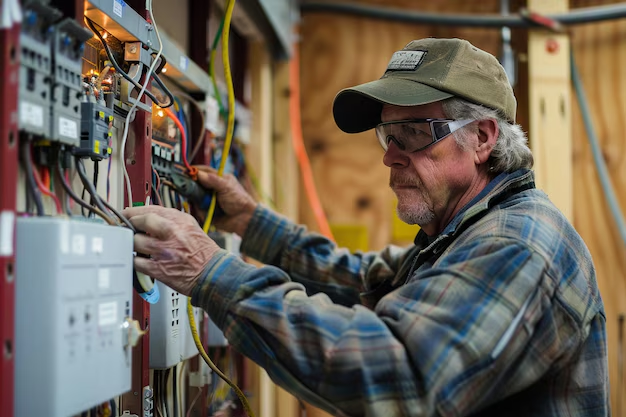What Should You Expect to Pay an Electrician? Here's Your Guide
So, you've decided to hire an electrician to fix those flickering lights or perhaps upgrade your home's wiring. The inevitable question looms—how much will it cost? The answer, while varied, is straightforward with a bit of insight into the factors that influence an electrician's fees.
Understanding the Cost Structure
The cost of hiring an electrician generally comprises two main components: labor rates and materials. Labor rates can significantly vary based on your location and the electrician's experience level. On average, across the United States, you could be looking at anywhere between $50 to $100 per hour for a licensed professional.
For smaller tasks like installing a light fixture, expect a charge between $150 and $500, depending largely on complexity and location. More complex projects, such as rewiring a house or installing a new electrical panel, can run into several thousand dollars.
Influencing Factors: Why the Price Fluctuates
Several key factors can affect costs:
- Location: Electricians in metropolitan areas usually charge more than those in rural regions.
- Complexity and Scope: Simple repairs cost much less than extensive installations or intricate problem-solving.
- Experience and Certification: A journeyman electrician often charges less than a master electrician, although the latter might complete the job more efficiently.
Getting Estimates: The Smart Approach
Before committing to any electrician, gathering multiple quotes is advisable. This creates a benchmark for pricing and helps you understand the market better. When comparing quotes, ensure they cover all aspects of the job, from the timeline to the costs of materials.
Budget-Conscious Tips
While electrician work isn't often the cheapest, there are strategies to make it more affordable:
- Bundle Tasks: If you have multiple small tasks, hiring an electrician to complete them all at once could save costs.
- Research for Rebates: Some electrical work might qualify for local government rebates or incentives, especially if it improves energy efficiency.
- Maintenance Agreements: Regular maintenance contracts with electricians can sometimes result in reduced rates for services.
Financial Help and Resources
For those requiring electrical work but are concerned about the costs, several financial assistance programs and solutions can help ease the burden:
- Government Aid Programs: Look for government assistance aimed at home improvements, which often includes energy-efficient upgrades.
- Home Repair Grants: These are available in many states for eligible homeowners seeking to improve the safety and sustainability of their homes.
- Low-Interest Credit Options: Some financial institutions offer loans specifically for home improvements at competitive interest rates.
- Credit Card Solutions: If financing through credit cards, consider ones offering 0% interest on purchases for a set period.
- Community Resources: Local nonprofit organizations sometimes provide assistance for essential home repairs.
Your Toolbox for Help
Below is a list of resources that might make your next electrician bill easier to handle:
- 🏠 Home Improvement Grants: Check with your local government for available grants.
- 💡 Energy Efficiency Rebates: Programs often run by utility companies to promote energy savings.
- 💳 Financing Options: Special credit cards or loans with favorable terms for home upgrades.
- 📚 Educational Workshops: Learn more about efficient home management to avoid future costly repairs.
- 🤝 Community Support: Engage with local organizations for possible assistance and advice.
Navigating electrician costs might seem daunting, but with the right approach and resources, you can manage expenses effectively. Consider your priorities, explore all available financial assistance options, and soon, your electrical woes will be a thing of the past.

